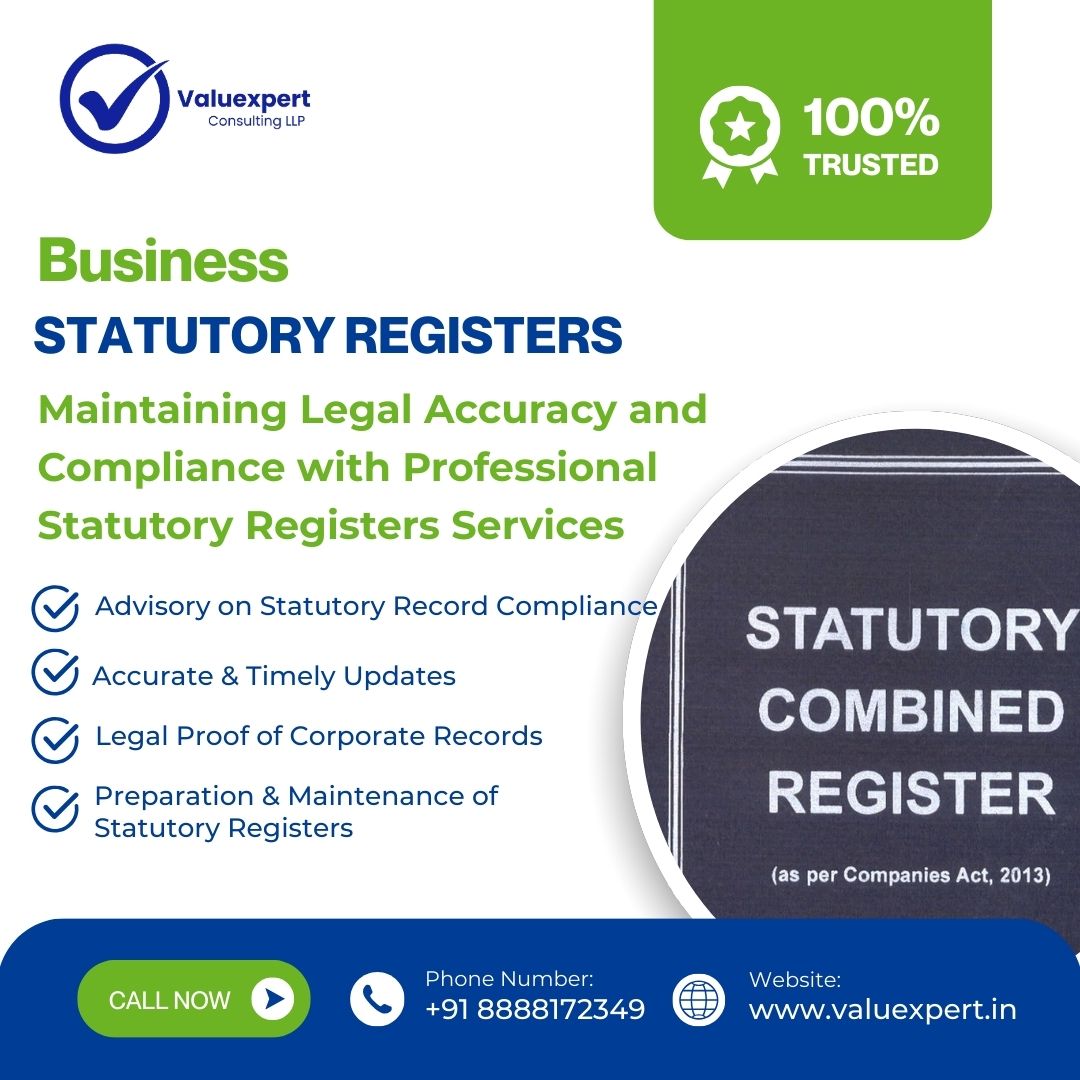Statutory Registers

"Maintaining Statutory Registers: Compliance Essentials for Private Limited Companies"
AComprehensive Overview of Statutory Registers Under the Companies Act, 2013
According to the Companies Act 2013, companies are obligated to maintain various registers, which must be kept at the registered office in either hard copy or soft copy format. These registers, known as statutory registers, serve as official records containing crucial information about the company's directors, shareholders, members, and other key personnel. Ensuring the accuracy and regular updating of these registers is imperative to comply with the law and uphold transparency and accountability to stakeholders.
Here's a detailed breakdown of the statutory registers mandated by the Companies Act, 2013:
1. Register of Members: This register includes details of all company members, such as their names, addresses, and shareholdings. Any changes in membership must be promptly updated.
2. Register of Directors and Key Managerial Personnel (KMP): This register comprises information about directors and KMP, including their names, addresses, and relevant details. Updates regarding appointments, resignations, or removals must be recorded. This register is subject to inspection at every annual general meeting and must be accessible to all attendees.
3. Register of Charges: Details of charges created by the company, including their nature, amount, and the parties involved, are recorded in this register. Any alterations to charges must be promptly documented.
4. Register of Loans, Investments, Guarantees, and Security: This register contains information on loans, investments, guarantees, and security provided by the company, including transaction details and terms.
5. Register of Contracts or Arrangements with Related Parties: Details of contracts or arrangements with related parties, including transaction specifics, are recorded here. Any changes in these transactions must be duly updated.
6. Minutes of Meetings: This register documents the minutes of all board and general meetings, including resolutions passed during these meetings.
7. Register of Debenture Holders: Information about debenture holders, including their names, addresses, and debenture holdings, is maintained in this register. Changes in debenture holders must be promptly recorded.
8. Register of Directors’ Shareholdings: This register contains details of directors' shareholdings and any alterations therein.
9. Register of Sweat Equity Shares: Information about sweat equity shares issued by the company, including issuance details, is recorded in this register.
10. Register of Employee Stock Options: This register documents details of employee stock options granted by the company, including relevant terms.
Maintaining these registers accurately and updating them regularly is crucial to adhere to the provisions of the Companies Act, 2013. Failure to do so can result in penalties and legal ramifications.
Maintenance of Statutory Registers:
To comply with company law provisions, the following registers must be maintained:
- Register of Members: Form No. MGT-1.
- Register of Directors and KMP: Form No. MGT-2.
- Register of Debenture Holders: Form No. MGT-4.
- Register of Deposits: Form No. DPT-2.
- Register of Charges: Form No. CHG-7.
- Register of Contracts, Arrangements, and Transactions: Form No. MBP-4.
- Register of Employee Stock Options: Form No. SH-6.
Conclusion:
All statutory registers should be kept at the company's registered office and made available for inspection by company members and authorized personnel. It's imperative to ensure the accuracy and regular updating of these registers. Any changes or amendments should be promptly and appropriately recorded.
